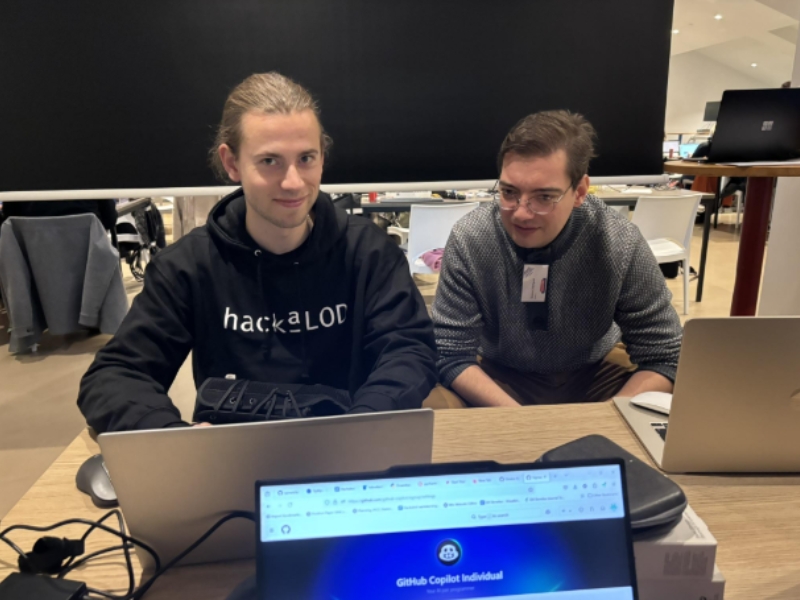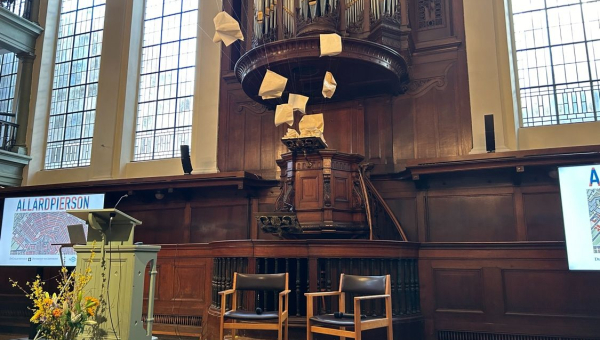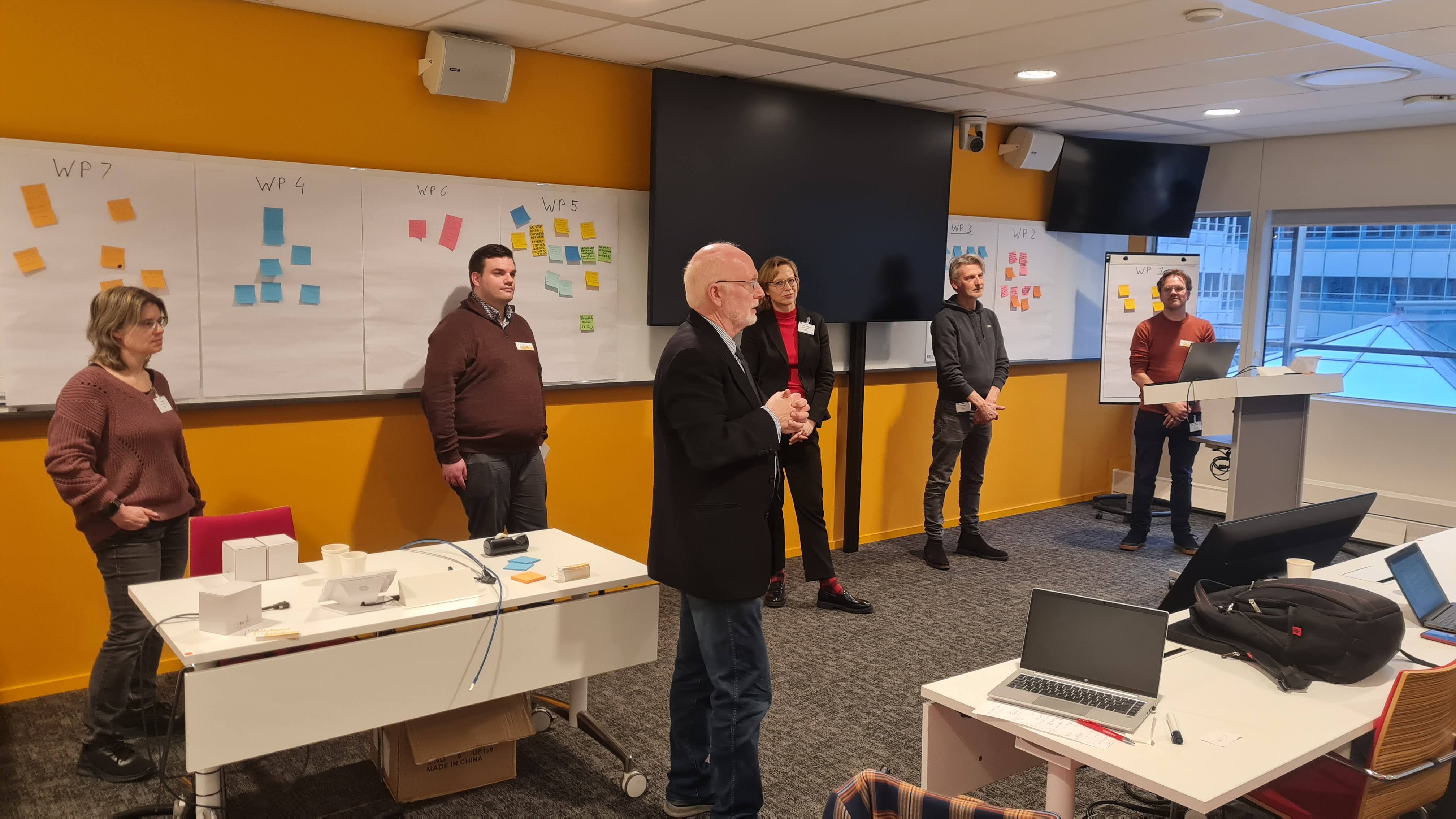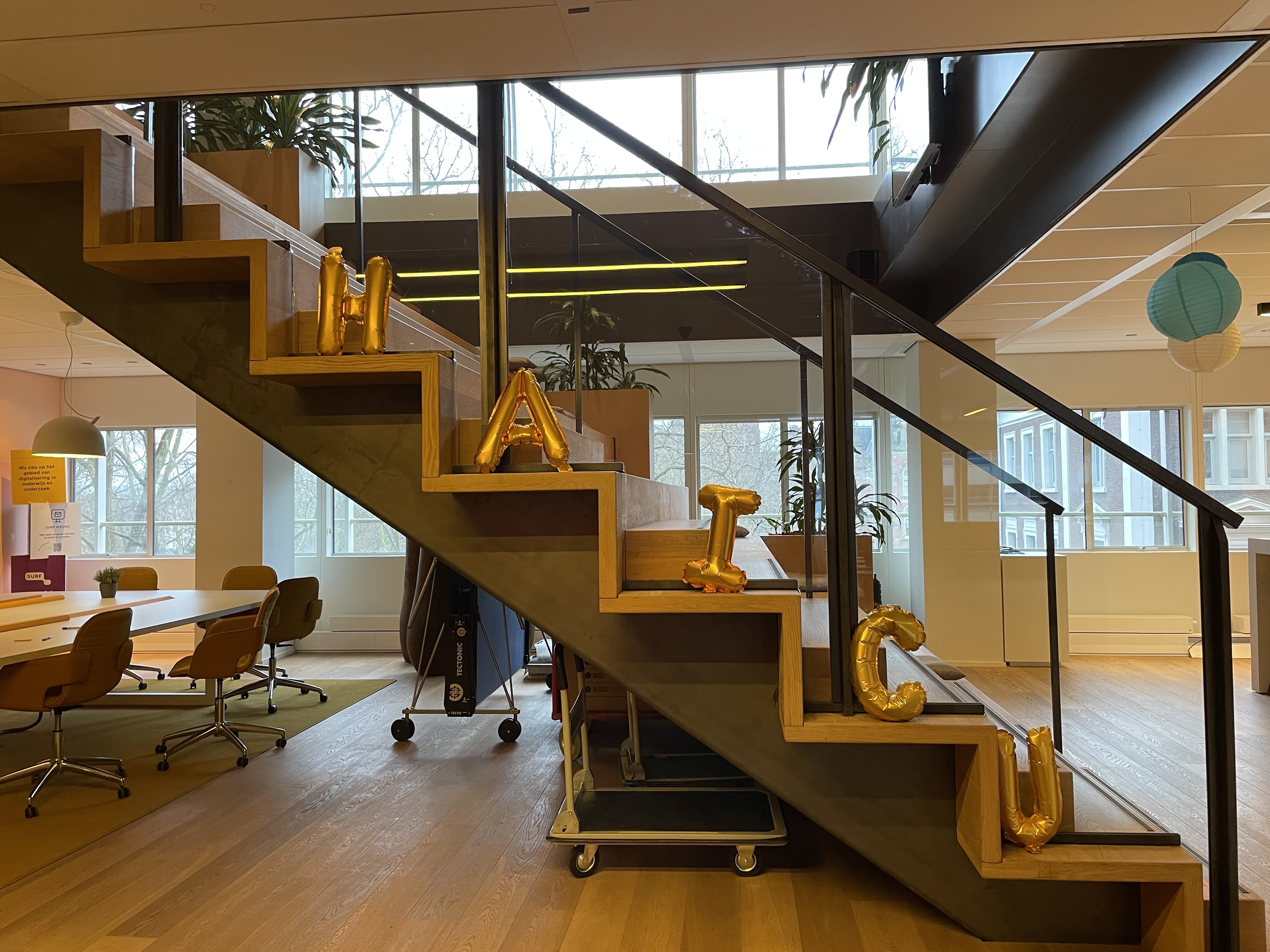The recent HAICu workshop at the National Library (KB) marked its 10-month milestone. In celebrating the early achievements, recognizing the challenges ahead, and defining a shared vision for the future, the event showcased how HAICu is transforming the way we can use Artificial Intelligence (AI) to unlock the treasures of cultural heritage for society at large.
Tackling AI Challenges That Matter
Project leader Lambert Schomaker (University of Groningen) opened the workshop by acknowledging that companies like OpenAI and Google are revolutionizing the field. However, Schomaker emphasized, HAICu’s research questions continue to stand the test of time: organizing the vast and complex cultural heritage collections, teaching AI to work with limited data instead of relying on massive datasets, and contextualizing information to tell inclusive, multi-perspective stories that enrich societal discourse.
For example, Andreas Weber (University of Twente) reflected on the recent HackaLOD 2024 event. The HAICu team worked day and night on the challenge of linking diverse cultural heritage datasets into a single, interactive platform. This required linking handwritten archives, published texts, and museum objects — a technical challenge that also raised critical questions about how to deal with our cultural historical biases.
Pushing AI Beyond the Basics
Annemieke Romein (University of Twente) shared exciting progress on improving how AI interprets text. Instead of analyzing documents as simple blocks of text, her research group is training AI to understand “text landscapes”. This means recognizing handwritten notes in margins, tables, symbols, and other nuanced features that we humans process naturally. For instance, paragraph indentations may signal questions or ideas that need to be understood as part of the document’s meaning. Teaching AI these complexities opens the door to understanding numerous handwritten historical texts.
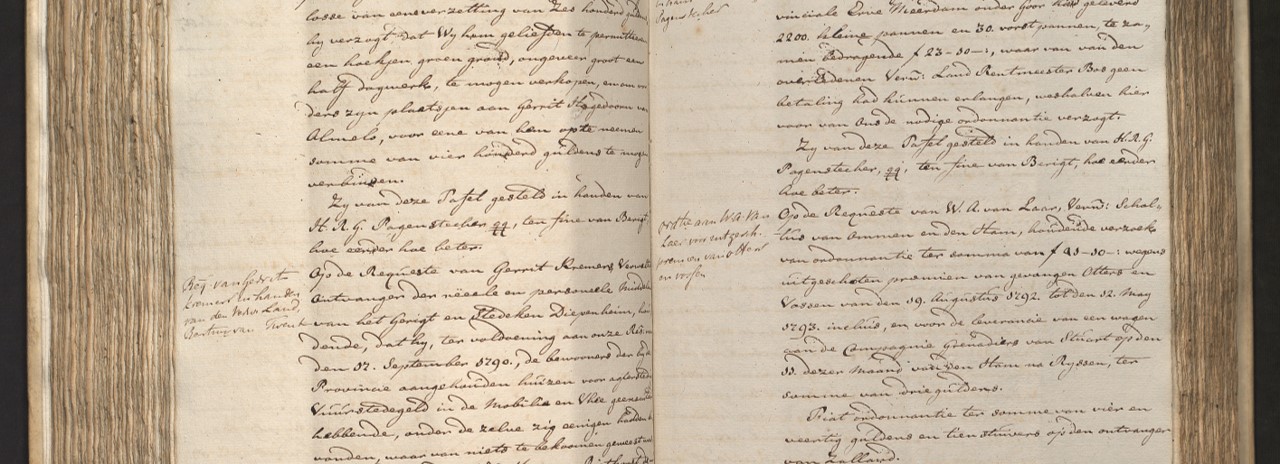
The workshop also celebrated HAICu’s new generation of researchers. PhD students, some on their very first day, presented their research proposals: from building explainable AI tools that “reason” like humanities scholars, to creating accessible cultural heritage tools that address biases. The variety of their work and background reflects the interdisciplinary and collaborative spirit of HAICu.
Collaboration: Humans and AI Together
The afternoon sessions emphasized co-creation — both in working across disciplines and in human co-creation with AI. Eric Postma (TiU) pointed out that while AI researchers tend to simplify cultural complexities, cultural heritage experts tend to overestimate AI’s capabilities. By bridging these worlds, HAICu ensures that tools are realistic, ethical, and valuable for society.
The Royal Library’s Deputy Director, Martijn Kleppe, showcased both the opportunities and challenges of digitization. With over 2 petabytes of cultural heritage data (that’s about 120 km of storage!), accessibility has become a key concern. The library is addressing this on two fronts: in pursuing transnational agreements about data management, and via tools such as “Curatorbot,” which answers questions about books in multiple languages, and “Retro,” an AI that analyzes books using the first and last pages.

Tania Duarte from We and AI highlighted the ethical dimensions of AI. She explained how AI reflects our societal biases because it gets most data from privileged groups. This challenge mirrors historical biases in cultural heritage, where certain voices were dominant. In order to prevent falling in the AI hype, Duarte stressed the need for precise definitions, responsible AI design, and imagery that avoids reinforcing misconceptions about AI’s capabilities.
From HAICu to Society: What’s Next?
As Enno Meijers (NDE, KB) explained, the ultimate goal of HAICu is to make cultural heritage more visible, accessible, and meaningful to society. By laying the foundation for smart, user-friendly AI systems, HAICu will empower people - from researchers to journalists and the general public - to explore and understand our shared cultural history.
In a fast-moving and unpredictable AI landscape, HAICu remains flexible and focused on what matters most: developing tools that not only advance technology but also enhance our understanding of culture, society, and the stories that shape us.
So, while the HAICu project just got started earlier this year, preliminary results show immense promise. By bringing together AI and digital humanities experts, cultural heritage institutions and direct input from society, HAICu is creating innovative solutions that have the potential to benefit us all for years to come.
Written by Merlijn Broersma

1.jpg)
